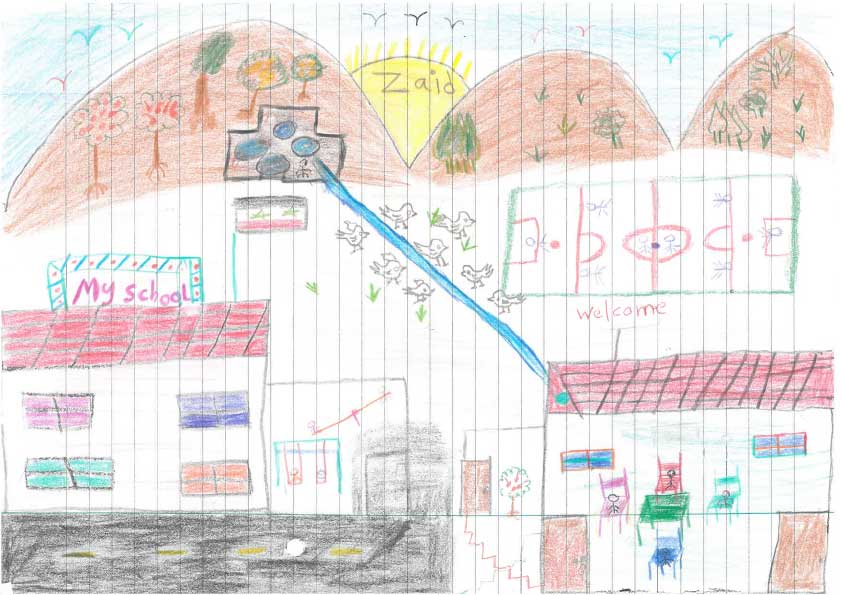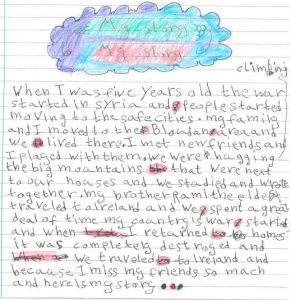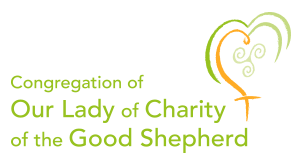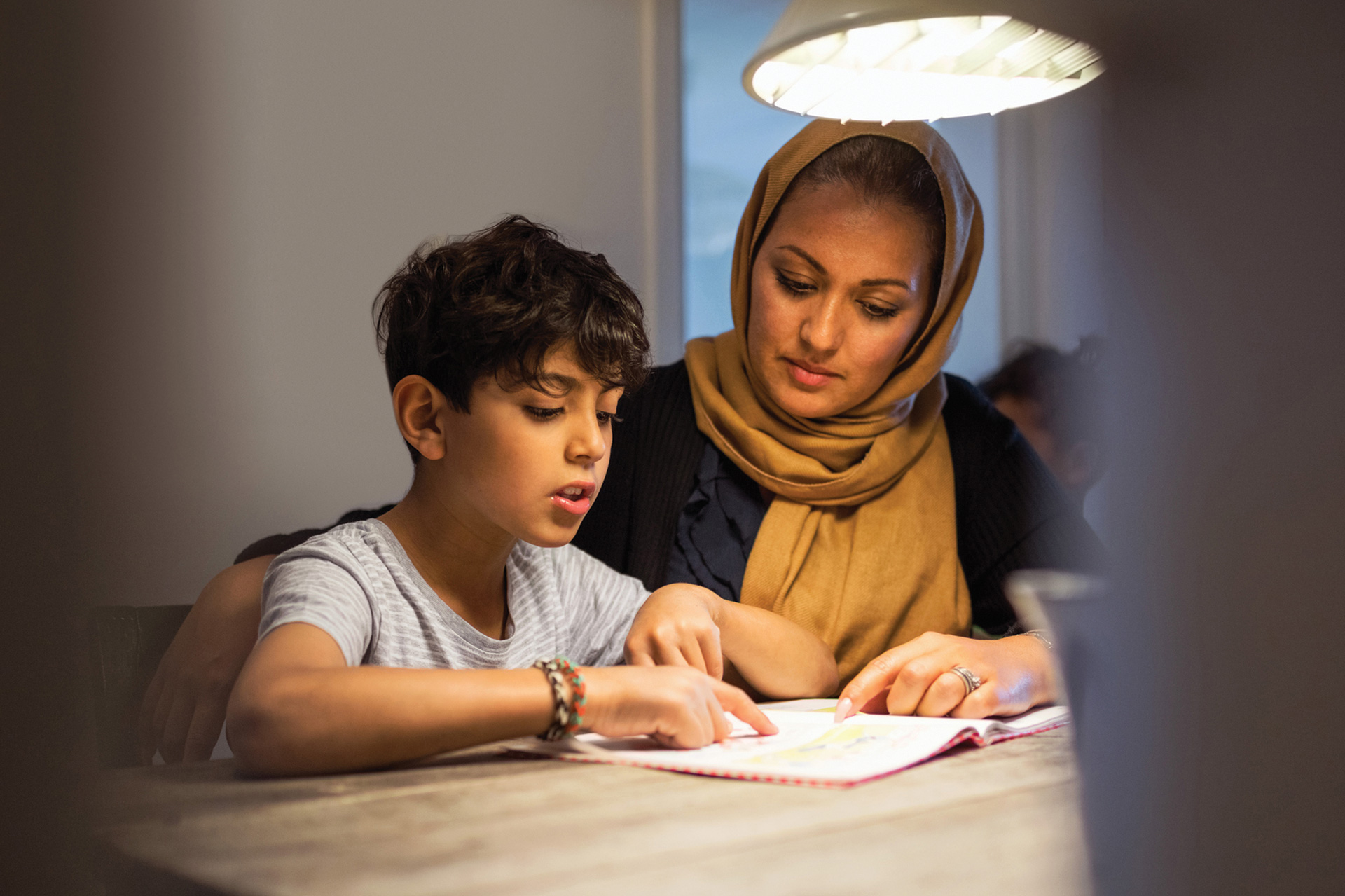It is a typical school scene: a group of children sit in a classroom, several more play football outside, a few lucky ones are having fun on the swings and seesaw in the playground. Over the roof of the building are the words ‘My school’ and on the other side of the picture is written a single word: ‘Welcome’. A Syrian flag flies above the school, while a backdrop of mountains, birds and fruit trees suggest an idyllic valley setting.
It is a typical school scene: a group of children sit in a classroom, several more play football outside, a few lucky ones are having fun on the swings and seesaw in the playground. Over the roof of the building are the words ‘My school’ and on the other side of the picture is written a single word: ‘Welcome’. A Syrian flag flies above the school, while a backdrop of mountains, birds and fruit trees suggest an idyllic valley setting.
Yet the commentary written alongside this drawing of a seemingly carefree childhood tells a different, heart-breaking story: “When I was five years old the war started in Syria and people started moving to the safe cities… When I returned home it was completely destroyed and we travelled to Ireland and I miss my friends so much…”


Zaid now lives in Ireland with his family, who have travelled here under the Family Reunification Scheme. His older brother arrived here first as an asylum seeker, having left Syria when conditions there became impossible. The war had destroyed homes, schools, business, whole villages and towns. For an entire year the family had no electricity, and there were times when they had little food. The political situation was tense.
“There was no future there. People started to send out their sons to go and find a better life,” he explains. A teenager, he made his way to Damascus, then on to Lebanon and Turkey, travelled to Greece by boat, and eventually was cleared to come to Ireland. It was a difficult and uncertain journey that took more than a year, and it took another year staying in hostels and direct provision in Ireland before his family were able to join him. They secured accommodation through the Irish Refugee Council with assistance from Good Shepherd Ireland, and are now settling into a life that is very different from the one they knew back home.
Before the war, the family ran a number of businesses in Syria, while the children were at various stages of their education. “Everything was good before the war. We had a good house and we were a very happy family. We lived in a rural area that was popular with tourists. Our home was in a valley; you could reach up and pick fruit off the trees... Now the trees and buildings are gone. The war destroyed everything.”
They pepper their conversation with “Alhamdulillaah” – Arabic for ‘thank God’ – as they recount the experience of coming to Ireland. In spite of everything, they see themselves as fortunate. “We are very lucky to have accommodation and we don’t have to worry about anything. Compared to other stories we have heard, we have no problems,” they say.
The family are now at various different stages of learning English, with the younger members attending school and settling into the different education system. While in Syrian secondary schools there are 10 compulsory subjects, in Ireland they have more choice of subjects. “There is more pressure on students in Syria, more homework,” explain the parents. “In primary schools there, maybe an hour a week is given over to music; here it is a lot more.”
While they feared they would find it difficult to integrate into a new culture and community, they say they have found people welcoming. “We don’t feel like strangers. We were afraid that we would not integrate, but we feel part of the community, thank God. People are very respectful and greet us even if we can’t always speak back. Our neighbours are lovely, and the [Good Shepherd] Sisters come and visit.”
As long as Syria remains unsettled they are unable to go back, though their dream is to return home one day. “People are very nice here, but Syria is home,” they explain. “When we celebrated Ramadan here, we really missed our family and being in our country. Where we lived, it was one third Christian and two thirds Muslim, and on our different feast days we would all greet one another. Please God things will improve in Syria. The people are strong. Life has gone down to zero, but we will build it up again.”
The parents’ dream for their children was for them to finish their education in Syria and move on to build successful careers and lives. Now they hope that some of that dream can be realised here. “We worry for the future of our sons,” they say. “Please God, we will be happy to see them educated. As parents we had dreams for our children, and suddenly everything was gone. But we are lucky – some people lost everything. We are a happy family and our marriage is strong.”
And after a turbulent two years during which they went for long periods without seeing two of their sons, they simply say now: “Thank God we are together again.”


